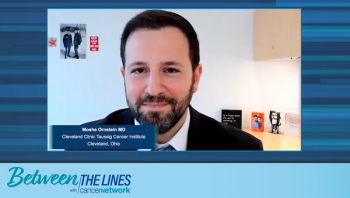
A look at the factors considered in choosing an appropriate combination treatment for advanced renal cell carcinoma.

Your AI-Trained Oncology Knowledge Connection!


A look at the factors considered in choosing an appropriate combination treatment for advanced renal cell carcinoma.
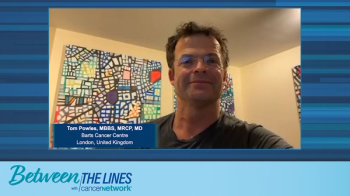
Drs Rana McKay and Tom Powles debate the merits of different first-line combination treatment regimens for renal cell carcinoma.
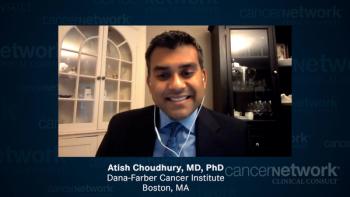
Prostate cancer experts share exciting changes to the prostate cancer treatment landscape and how we are now better equipped to take care of patients with prostate cancer.
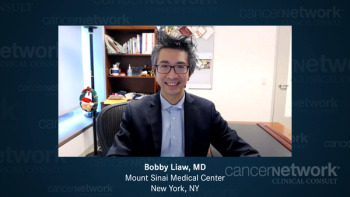
A prostate cancer expert reemphasizes importance of open communication between patients and healthcare providers.
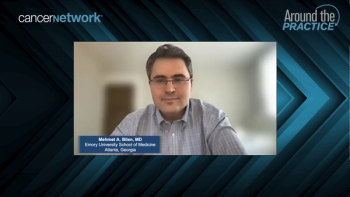
A brief discussion on available treatment options after patients progress following frontline TKI/IO therapy with favorable-risk renal cell carcinoma.
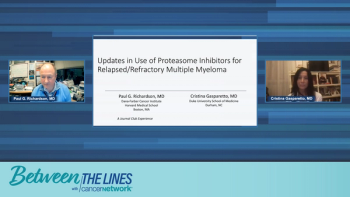
Insight on the ASH 2021 update highlighting response rates and discontinuation in patients who received in-class transition from bortezomib to ixazomib for multiple myeloma.
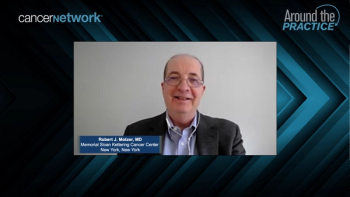
A comprehensive review of the adverse event profiles of TKI/IO regimens used in favorable-risk renal cell carcinoma and how these can be managed with dose adjustment.

Reflections on the patient-reported adherence and outcome data with IRd (ixazomib, lenalidomide, dexamethasone) therapy after an in-class transition from bortezomib to ixazomib for patients with multiple myeloma.
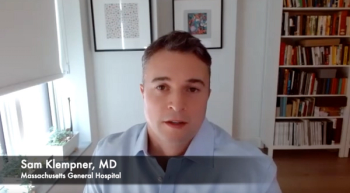
Sam Klempner, MD, spoke about utilizing ctDNA the treat nonmetastatic gastroesophageal cancers at 2022 IGCC.
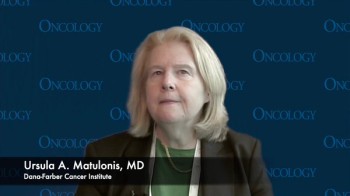
Ursula A. Matulonis, MD, highlights the rationale behind studying mirvetuximab soravtansine (IMGN853) as a therapy for patients with folate receptor α (FRα)–high platinum-resistant ovarian cancer.
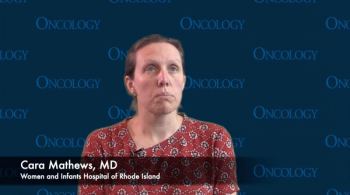
Cara Mathews, MD, spoke with CancerNetwork® about research examining dostarlimab vs doxorubicin for patients with mismatch repair–deficient endometrial cancers.
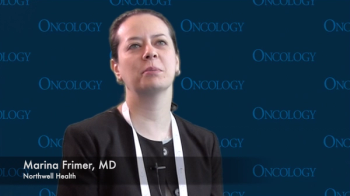
Marina Frimer, MD, spoke about the goals of a phase 2 trial and how it can impact patients with platinum-sensitive recurrent uterine serous carcinoma.
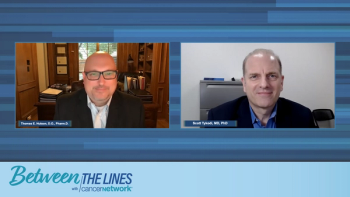
Thomas Hutson, DO, PharmD, and Scott Tykodi, MD, PhD, discuss their takeaways from the CLEAR trial and how risk category stratification affected the study.
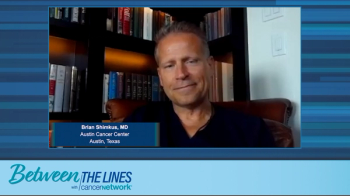
Brian Shimkus, MD, shares his opinion of data on lenvatinib and pembrolizumab from the CLEAR trial.

Oncologists debate whether TKI monotherapy has a place in renal cell carcinoma treatment after the CLEAR trial.
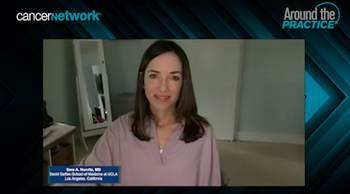
A multidisciplinary panel of health care professionals and a patient advocate comment on their excitement about novel therapies in the pipeline for HER2-positive metastatic breast cancer.
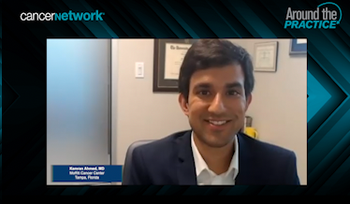
Improvements regarding the identification and management of radiation necrosis in patients with HER2-positive metastatic breast cancer.
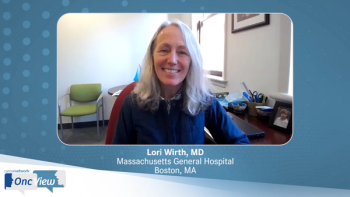
Lori Wirth, MD, provides an overview of differentiated thyroid cancer including patient presentation and disease course.
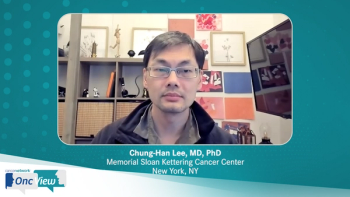
Chung-Han Lee, MD, PhD discusses how genetic mutations inform patient prognosis and decision-making for patients with kidney cancer.
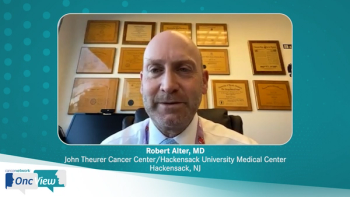
Robert Alter, MD opines on the current prognostic value of biomarkers for RCC and the need for additional data in the field.
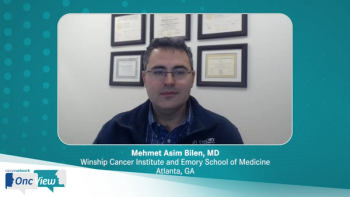
Mehmet Asim Bilen, MD weighs in on various biomarker testing methodologies, sample considerations, and emerging data on novel biomarkers.
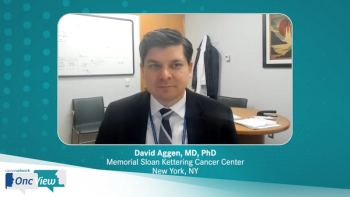
David Aggen, MD, PhD reviews how he currently approaches biomarker testing in patients with RCC.

Mehmet Asim Bilen, MD comments on the prognosis of patients with metastatic RCC and how recent advances have improved outcomes.
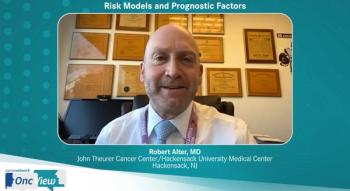
Robert Alter, MD comments on the use of prognostic models for determining risk status and informing treatment options in patients with RCC.
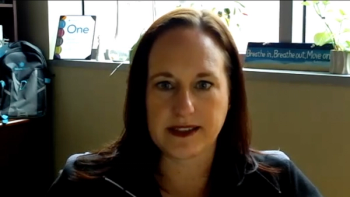
Candice Roth, MSN, RN, CENP, spoke about how the electronic treatment pathways have evolved over time.
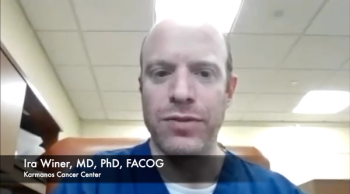
Ira Winer, MD, PhD, FACOG, spoke about which presentations during The Society of Gynecologic Oncology 2022 Annual Meeting he most enjoyed.
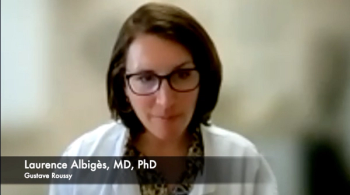
Laurence Albigès, MD, PhD, discusses how immunotherapy combinations have affected the treatment landscape for previously untreated advanced or metastatic renal cell carcinoma.
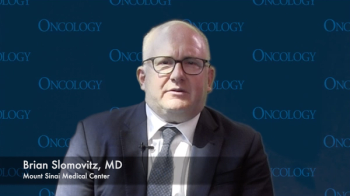
Brian Slomovitz, MD, Reviews Adjuvant Pembrolizumab and Chemo +/– Radiotherapy in Endometrial Cancer

Experts Paul Richardson, MD, and Cristina Gasparetto, MD, discuss trial data analyzing the in-class transition from bortezomib to ixazomib for patients with multiple myeloma.
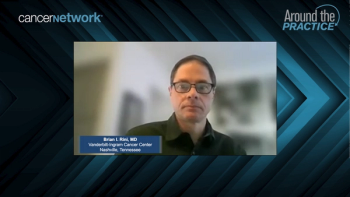
Expert insights on selecting the appropriate patients and dose for treatment with the lenvatinib plus pembrolizumab regimen in patients with renal cell carcinoma.